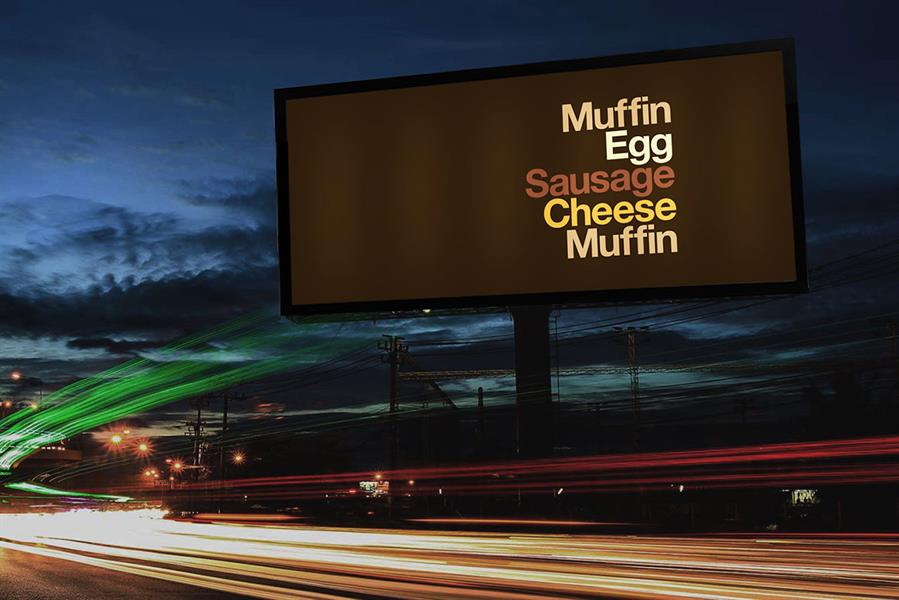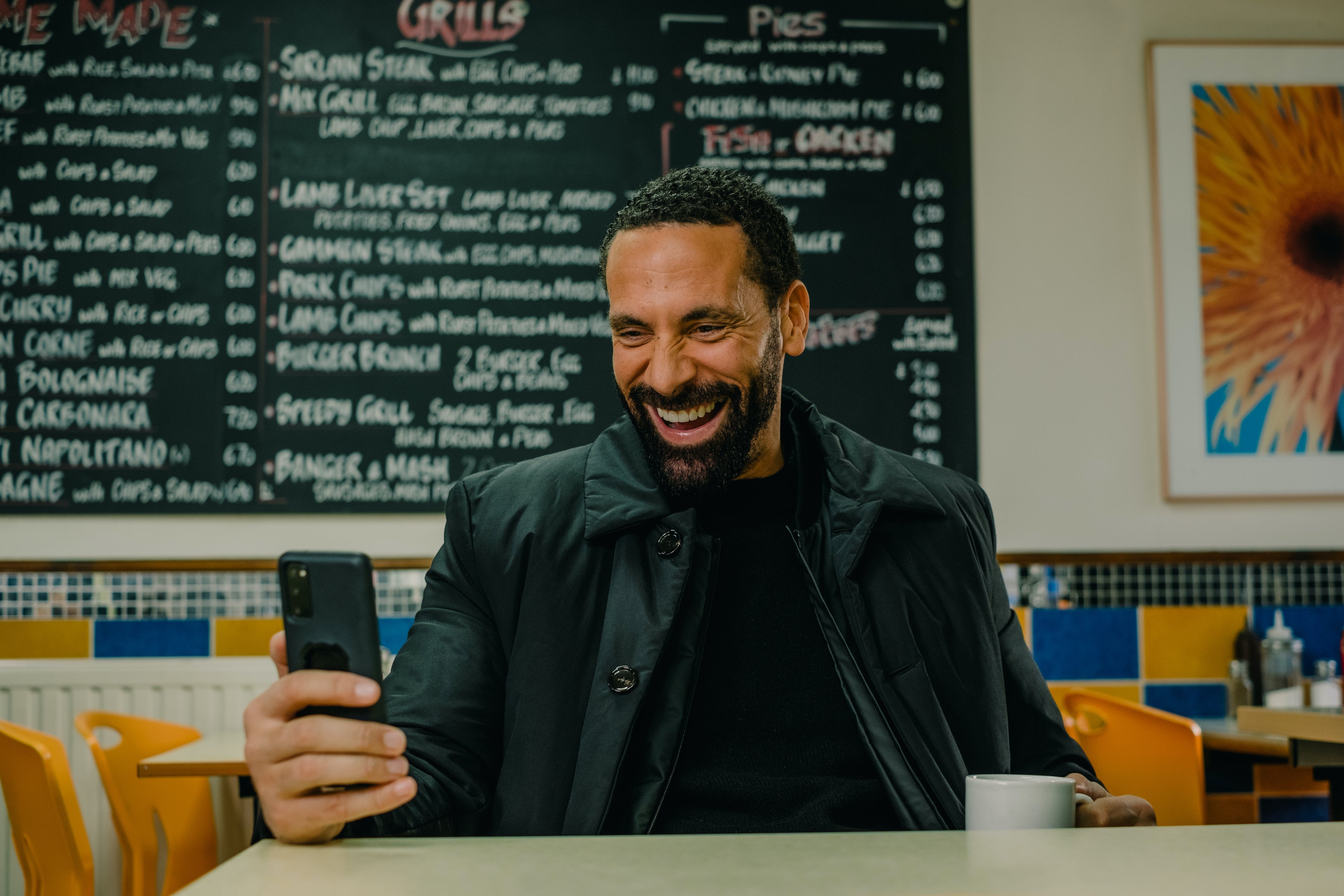How Annette King became the head of an advertising empire
Annette King has been at the forefront of some of the biggest and most recognisable advertising campaigns in the UK. She spoke to Andy Martin about how she became the CEO of Publicis


I never thought I’d say this: a McDonald’s ad had me welling up. It’s their Christmas 2020 “Forever Young” ad about the inner child and the adolescent kid and the single mum. I’m sobbing just writing that. And I am no fan of McDonald’s. The woman responsible for bringing out my inner child is Annette King, CEO of Publicis Groupe UK, an advertising empire spanning 21 different companies and 100 countries.
Funnily enough, she was the daughter of a single mum too. She is a working-class girl who made it in the world of Mad Men. King has had the kind of career that would be impossible in lockdown, since key turning points along the way seemed to have occurred typically in pubs.
The first significant pub in her life was Rudi’s Bar in Swindon. This was back in 1991 when, as she says: “You had to fight that bit harder to find a job.” She had recently finished a business studies degree at Oxford Polytechnic (as it was then, now Oxford Brookes) and she knew she wanted to go into a creative industry, probably based in London.
She had tried waitressing at a Beefeaters and the Beefeater costume didn’t really suit her. And then she went to Rudi’s one night – “It’s where you went in Swindon as a young adult” – and happened to have a chat with a Swedish guy called Karl who mentioned a friend with a small agency in London. “It was an early lesson in networking,” King says. “I didn’t even realise I was doing it.”
She stayed with Beechwood for a couple of years, working on brands such as HMV and Beefeaters gin (there has been a lot of beefeating in her life) and – “slightly less glamorous” as she says – Carpetland. “That’s why advertising is exciting and never gets dulls – you’re always jumping from hardcore retail to booze to youth culture. There’s something new and different every day.”

In 1993 she moved on to a bigger agency, Wunderman, and worked on BT among other brands. “But I made the mistake of going out with the art director,” she says. When that relationship came to an end, she sailed away to the New York office where she spent the next five years in Chelsea, on 6th Avenue. King says that advertising in New York was a level playing field. It was Mad Men and Mad Women too. Her global CEO was a woman, for example. “But there’s always more to be done in terms of the representation of LGBTQ and the under-privileged and disabled people. The industry is working much harder to address that balance.”
In 2000 King returned to London and joined Ogilvy, where she worked on American Express and web development. She was living through the digital transformation of the advertising eco-system. Suddenly everyone was swamped in masses of data. “It’s how you use the data,” King says. “If you can get the right message out to the right people, it’s far better than the blanket approach.”
Not only did she improve targeting, but she was alert to the cascading effect of social media. If they can persuade other people to become advocates for the brand then, she feels, they have succeeded: “There’s nothing better than having a consumer telling other consumers about the product.”
Her job is to connect up McDonald’s with Grazia or ITV and Britain’s Got Talent or the Superbowl, making products appealing to the right audience
But isn’t there a dark side to advertising? Aren’t you twisting people’s arms? Isn’t it all a bit of a con? King says: “There’s no point lying in an ad – the consumer will find you out.” She’s right. Have a look at that McDonald’s ad – it’s not lying. But, rather like poetry, it associates the brand with lots of positive, fun images, so we can stuff ourselves silly while dreaming of reindeer and snowballs. And the real subtlety of that ad is to keep the actual amount of McDonald’s products to an absolute bare minimum and put the emphasis on slim mum and moody waif-like boy in a hoody.
King doesn’t spend her day sitting around dreaming up slogans and jingles. She operates at the intersection of four different groups, liasing between the brand, media owners, platforms, and finally the consumer. Her job is to connect up McDonald’s with Grazia or ITV and Britain’s Got Talent or the Superbowl, making products appealing to the right audience. She admits she can occasionally be sucked in by other people’s ads. “Like any consumer, I will buy, if the advertising is well targeted.” She says dating apps are of little interest to her but she is engaged by stuff aimed at married women with children. “I might click through on some fashion item, for example. Did I really need one? No, but I was interested.”

King is still advertising on traditional media such as television and billboards, but she says that the two biggest players in the field are now Facebook and Google, with Amazon and Tik-Tok not far behind. “We are living in a platform world,” she says. One of her specialities is the 6-second ad online after which you can skip. But she aims to make her content so appealing “that people actively choose to watch” (which is exactly what I found myself doing with McDonald’s).
The second pub that was of crucial significance in Annette King’s life was the Walmer Castle in Notting Hill (owned by Guy Ritchie and David Beckham). It was here that she met her husband, on a date set up for her by a friend in New York. “I grudgingly agreed to go to make my friend happy.” Then they went to the Thai restaurant upstairs and romance heated up over a curry.
King rose to become UK CEO of the Ogilvy group, then she was approached in 2017 by the global CEO of Publicis, Arthur Sadoun, and persuaded to head up the UK side. Publicis has a snappy slogan of its own – “The Power of One” – which stresses the huge advantage of having access to so many different forces in one all-inclusive package.
The other McDonald’s campaign King is particularly proud of is the “Welcome Back” ad of July last year, to celebrate the reopening of restaurants in a (temporary) release from lockdown, showing big Mac fans hooting and dancing and shoving in burgers and chips slathered in pink sauce and telling the world, “I’m so happy.” “It captured the mood,” King says, “the sheer joy of the moment.”
Unlike Homer Simpson, I’m never going to get too worked up about the sight of big fat slabs of meat in a bun. I’m the wrong audience. On the other hand, I might well give a cheer the day that pubs reopen and we can all go back to Rudi’s or the Walmer Castle.




Join our commenting forum
Join thought-provoking conversations, follow other Independent readers and see their replies
Comments